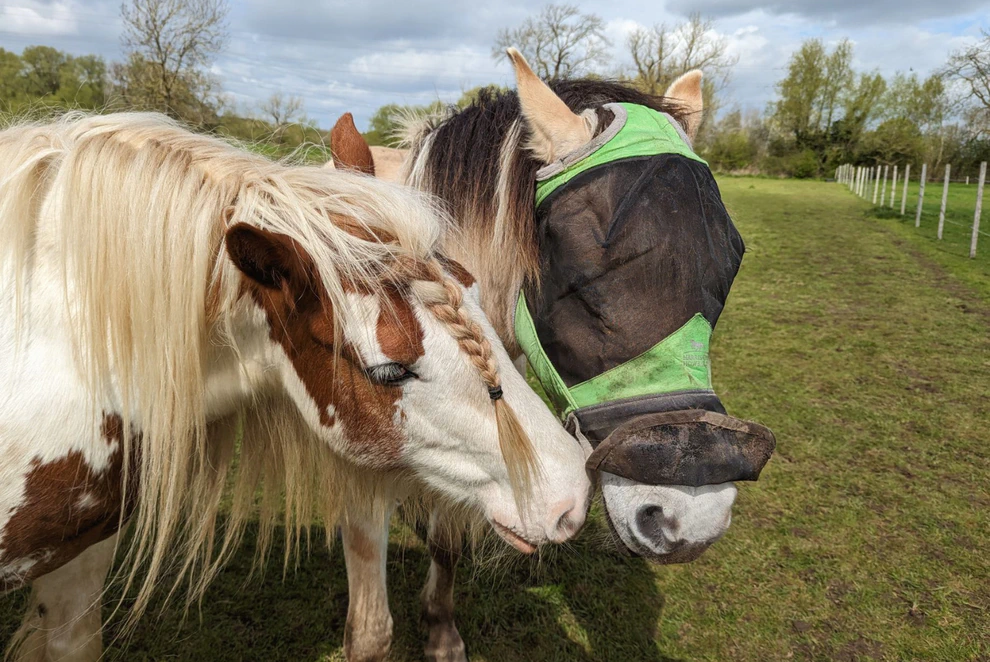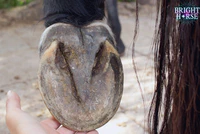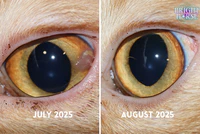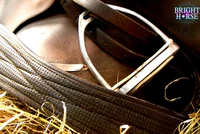Why the Words You Use With Yourself and Your Horse Shape Your Training Success
We all know horses pick up on our energy, or body language but what if they’re also responding to the exact words we use even when we’re just talking to ourselves?
The way we speak, both to ourselves and about our horses, doesn’t just reflect reality it creates it. Our words influence our mindset, our body language, and ultimately, how we approach challenges in training. And because horses are incredibly sensitive to subtle changes in our posture, tone, and behaviour, the language we use matters more than we might think. This is known as ‘Self-Talk’
In this blog I want to share with you a recent conversation I have with a client about how self-talk, and the way we describe our horses/ourselves, impact our training and our confidence.
How Self-Talk Affects Your Riding
You’re warming up in the arena, and things aren’t going as planned. Your horse isn’t responding the way you expected. Maybe they feel tense, sluggish, or distracted. What ever the cause is chances are you are thinking something like…
❌ “I can’t get this right. Why am I so shit!”
❌ “I’m just not a good enough rider, a better rider could do this”
❌ “Everyone else makes this look so easy, I must be terrible at this.”
We very VERY rarely think..
✅ “Okay, this isn’t working what can I change?”
✅ “My horse is feeling distracted today, how can I help them focus?”
✅ “Every ride is a learning experience, maybe riding on this windy day was a bit mad!”
These inner dialogues is ‘self-talk’ and while it might seem harmless, it’s not! The words we use to talk to ourselves or our horses has a profound impact on our confidence, body language, and overall training experience.
The Science Behind Self-Talk
Research in behavioural psychology shows that the way we talk to ourselves directly affects our stress levels, confidence, and emotional resilience, because the words we use to describe a situation really do matter.
🔹 Negative self-talk increases anxiety When you constantly tell yourself you’re not good enough, your body responds with physical tension tight shoulders, shallow breathing, and stiffness in the saddle. This is because of the type of animal us humans are, we are social and what we say matters, even if it to ourself. Because our body changes, then so does our horse, as they pick up on these cues and may become hesitant or reactive.
🔹 Positive self-talk builds confidence and adaptability. Riders who consciously shift their inner dialogue from “I can’t do this” to “I am learning” feel more in control and are better at problem-solving in training sessions. It’s like having your biggest fan there, which is you by the way, cheering you on and supporting you. Think about it; whos advice to you value the most? It’s actuallly you.
🔹 Your horse mirrors your emotions. Now this one we know based on the research… we just don’t understand how! It is likely that if you approach training with frustration and self-doubt, your horse will likely respond with resistance. If you approach it with curiosity (I’m learning) and patience (What can I change when things don’t do right), your horse is more likely to stay relaxed and engaged.
Rewriting Your Self-Talk
This is the hard bit, and do as I say not as I do… cos I often tell myself I am crap! But try to find a way, next time you catch yourself being self-critical, pause and ask yourself these three questions:
❓ Would I say this to my friend? I don’t think I would tell my friend they were crap, I’d have no friends
❓ Is this helping me improve, or just making me feel worse? If you feel worse, STOP! Why would you want to feel worse?
❓ How can I reframe this to be more constructive? Learning means providing solutions not criticism
So here is what I try and get my clients to do, and if you know me you’ll know if I heard and negative self-talk you get in trouble 😂
🚫 “I always mess up my transitions.” → ✅ “My transitions are improving with practice.”
🚫 “I’ll never be able to canter confidently.” → ✅ “Cantering feels tricky now, but with time, it’ll get easier.”
🚫 “I’m just not as good as other riders.” → ✅ “Everyone learns at their own pace, and I’m making progress, my way.”
Your brain listens to what you tell it. Speak to yourself with patience and encouragement just like you would to a horse that’s learning something new.
How the Words You Use About Your Horse Shape Their Behaviour
Just as self-talk affects our confidence and approach to training, the language we use about our horses shapes how we interact with them. If you describe your horse as stubborn, naughty, or difficult, you’re more likely to approach them with that frustation in mind. And look I am guility of that with my horse! Trying to trim her feet and she wants to eat something the other side of the yard, I hear myself saying ‘You are such a brat!’. I loose out here, cos I got frustrated and I can’t finish my trim. It just hurts everyone, and this is supposd to be fun.
A friend of my is want to say they are just having a hard time, instead of tubborn, naughty, or difficult. I love this, cos yea! We all have a hard time sometimes, horses and us. Empthay for ourselves and horses breed positive interactions.
Reframing Your Horse’s Behaviour
Let’s look at a few common phrases we use and how they could be reframed for a better training mindset, so next time you think…
❌ “He won’t listen!” → ✅ “He’s struggling to understand what I’m asking, can I make it easier.”
❌ “She’s just being naughty.” → ✅ “She’s feeling overwhelmed or frustrated, how can I relieve that”
❌ “He’s always spooky for no reason.” → ✅ “He finds this area worrying I can help him feel more comfortable, by staying down the safe bit until he feels more relaxed.”
❌ “She refuses to load because she’s being difficult.” → ✅ “She doesn’t feel safe in the trailer I need to help her gain confidence.”
Or in my case, my horses isn’t a brat, she’s just been standing there while I faff and is now hungry. Maybe take a break, let her have some hay and you can have a coffee. Then finish up.
By shifting our language, we change the way we approach training. Instead of reacting in the moment, we start looking for root causes pain, confusion, fear, or discomfort. We become better trainers and horse owners. This leads to more effective, compassionate training and a stronger relationship with our horses.
The Power of Empathy in Training
The last section kinda lead into this bit nicely; horses don’t think in terms of right or wrong they react based on their experiences, emotions, and understanding of what’s being asked. They also don’t have the ability to reflect on memories the way we do. I can rememeber that experience with my horse and reflect on what I can do better. She can’t. She was just hungry and her Barbara got mad at her…
A horse that “won’t move forward” might be in pain or unsure of the footing.
A horse that “won’t stand still” might be anxious about their surroundings.
A horse that “won’t listen” might not actually understand what’s being asked.
When we assume stubborn, naughty, or difficult, we approach training with frustration and correction. When we assume confusion or fear, we approach training with patience and solutions. Again, what would you say to a friend what was scared or confused? You wouldn’t say “Buck up son! It’s only a fucking hedge!”
Your Words Shape Your Training
So I’ve put this into a handly acronym: CARP 🐟 like the fish. See now you won’t forget it!
C
Catch Negative Self-Talk in the Moment
Next time you feel frustrated with yourself or your horse, pause and notice the words you’re using. Are they helpful or hurtful?
A
Approach Training with Curiosity, Not Judgment
If something isn’t working, ask yourself why rather than blaming yourself or your horse. Training is a conversation, not a test.
R
Reframe the Narrative
Replace negative thoughts with constructive alternatives. Instead of saying, “I’m terrible at this,” say “I’m learning.” Instead of “He’s being difficult,” say “He’s having a hard time.”
p
Practice Self-Compassion
Progress isn’t linear. Mistakes are part of learning for both you and your horse. The more patient you are with yourself, the more patient you’ll be with your horse.
The Power of Language in Horse Training
The way we talk both to ourselves and about our horses shapes our training experience. Words influence our mindset, our approach, and the results we get. I am guility of doing it too, cos no one is perfect, but I try.
Next time you catch yourself saying, “I’m terrible at this” or “My horse is just being a dick” pause. Change the narrative. Speak to yourself and your horse with the same kindness and patience you would offer a friend. #Wouldyoutalktoyourfriendlikethat
Because when you shift your words, you shift your mindset. And when you shift your mindset, everything else your confidence, your training, and your connection with your horse follows.
Thanks for reading everyone, I hope you found it useful. If so you can share the message in the links below.
Till Next Month,
Barbara




